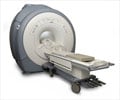New interventions help children to complete their MRI tests without involving any kind of sedation.

That is good news for children with sickle cell disease, who were the focus of this study. Patients with sickle cell disease often undergo brain and liver MRIs to check for complications related to their disease or treatment. But the blood disorder puts patients at increased risk for serious anesthesia-related complications, so sedation is avoided when possible.
This study of 71 patients with sickle cell disease ages 5 through 12 found that children who completed the short preparation program prior to their MRI were eight times more likely to complete the scans without being sedated than patients of the same age who did not receive the preparation. The work was published online in the journal Pediatric Radiology.
The intervention implemented by the Child Life Program at St. Jude involves educating patients and families about exactly what to expect during an MRI, assigning patients jobs to focus on during the scans and also working to identify strategies to help them remain motionless during the test. "Some patients chose to listen to music or to squeeze a ball to help them remember not to move," said Katherine Cejda, a St. Jude Child Life specialist and the study's first author. "Some patients had the option of watching movies or having parents or other adults in the room with them during the test."
This study is the first designed to determine the effectiveness of this approach and the first to focus on children with sickle cell disease. Cejda said similar programs are used by child life specialists throughout the U.S. to help prepare children for MRIs and other medical procedures. September is National Sickle Cell Awareness Month. This study highlights the varied efforts underway at St. Jude to improve the health and quality of life for children and adolescents with sickle cell disease.
The paper's senior author, Jane Hankins, M.D., an associate member of the St. Jude Department of Hematology, said that avoiding sedation reduces the risk to the patients, particularly those with sickle cell disease.
Advertisement
General anesthesia can lead to a drop in temperature, blood oxygen levels and dehydration. In patients with sickle cell disease, dehydration can result in a painful and dangerous buildup of sickled cells. Patients can wind up hospitalized, sometimes in the intensive care unit, for treatment of severe pain or acute chest syndrome, a pneumonia-like illness, Hankins said. To reduce that risk, a sickle cell patient scheduled for anesthesia is hospitalized overnight to receive extra fluids and possibly a blood transfusion.
Advertisement
The intervention is now routinely offered to all St. Jude patients undergoing MRIs. Cejda said the program has been used to help children as young as age 4 complete scans without sedation. "This preparation program offers a real advantage to patients," Hankins added.
The study included children scheduled for brain or liver MRIs, which usually last 30 to 60 minutes. Researchers reported that 30 of the 33 children, or 91 percent, in the intervention group underwent successful MRI scans without sedation. That compares to 71 percent, or 27 of 33 patients, who did not participate in the program prior to undergoing MRIs without sedation. The other authors are Matthew Smeltzer, Beth McCarville and Kathleen Helton, all of St. Jude, and Eileen Hansbury, formerly of St. Jude.
Source-Eurekalert












